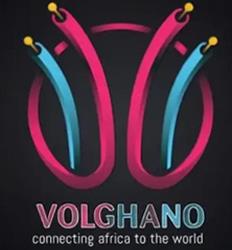About Ghana
Ghana is the destination of choice
A Land of Political Stability, Peace, Rich History, Diverse Culture and Art, Warm Hospitality, and Attractive Tourist Sites.
Ghana, located in West Africa along the Gulf of Guinea, is one of Africa’s most remarkable nations, renowned for its deep-rooted history, cultural diversity, and peaceful environment. Covering an area of approximately 238,533 square kilometres, Ghana shares borders with Côte d’Ivoire to the west, Burkina Faso to the north, Togo to the east, and the Atlantic Ocean to the south. The country features a diverse landscape, including coastal plains, rolling savannas, lush rainforests, and scenic mountains, making it a unique geographical destination.
Its tropical climate consists of wet and dry seasons, fostering rich biodiversity and a variety of ecosystems. As of 2024, Ghana has an estimated population of over 33 million people, with a mix of urban and rural communities contributing to its dynamic economic and social fabric.
Ghana – A Beacon of Culture, Peace & Heritage
Ghana has set itself apart as a beacon of democracy, a land of rich traditions, and a hub of historical and natural attractions that continue to draw visitors from around the world. From its vibrant arts and cultural heritage to its warm hospitality and breathtaking tourist destinations, Ghana offers a unique blend of past and present that makes it a must-visit destination. Ghana’s political stability, peace, history, culture, art, hospitality, landscape, regions, food diversity, and must-visit tourist sites.
Political Stability and Peace
Ghana is one of the most politically stable countries in Africa, often cited as a model of democracy on the continent. Since transitioning from military rule to a democratic government in 1992, Ghana has maintained a strong multi-party democracy with peaceful transitions of power. The nation’s electoral process is widely regarded as transparent and fair, with active participation from both citizens and civil society organizations.
The presence of a robust judicial system and independent institutions further strengthens democracy in Ghana. The country has experienced several successful presidential transitions, showcasing its commitment to upholding democratic principles. In comparison to many other African nations that struggle with political unrest, Ghana stands out as an example of stability and peace. The absence of major internal conflicts and the promotion of national unity have created a conducive environment for economic growth and foreign investments.
Rich History
Ghana’s history is deeply intertwined with African civilization, colonialism, and the fight for independence. The region that is now Ghana was once home to powerful ancient empires, including the Ghana Empire (not to be confused with modern Ghana) and later the Ashanti Empire.
During the transatlantic slave trade, Ghana was a major hub, with forts and castles along its coastline serving as centers for the trading of enslaved Africans. Some of the most notable historical sites, such as Cape Coast Castle and Elmina Castle, stand as solemn reminders of this dark period in history. Today, these castles are UNESCO World Heritage Sites, attracting visitors seeking to learn about Ghana’s past.
Ghana made history on March 6, 1957, by becoming the first sub-Saharan African country to gain independence from colonial rule under the leadership of Dr. Kwame Nkrumah. This monumental achievement marked the beginning of African liberation movements, inspiring other nations to fight for their freedom.
- +233 244 470 866
- +44 7984 291214
- team@volghano.org
- Volghano Post Office Box 1003 Tamale Northern Region Ghana
Copyright 2025 By VOLGHANO – All Rights Reserved.






